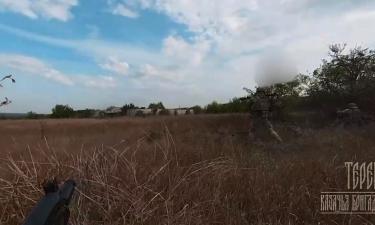Russia and Kyrgyzstan get into heated, steamy, racist migration scandal
The head of Kyrgyzstan's Ministry of Foreign Affairs, Jeenbek Kulubaev, commented on the high-profile case involving the detention of migrants at the Bodrost bathhouse complex in Moscow. According to him, Bishkek (the capital of Kyrgyzstan - ed.) is pleased that the case received widespread attention, noting that it was important to "try to take advantage of the situation."
Kulubaev emphasized that the publicity surrounding the incident has created conditions for further negotiations and a possibility to present an ultimatum to Russia.
Member of Parliament Altynbek Kylychbayev remarked that it would be good if Kyrgyz citizens, out of patriotism, refrained from going abroad to earn a living — including to Russia. In response, Kulubaev said that this would require improving the quality of education and providing jobs within the country.
"For the economy to develop, we need to have at least 13 million people — only then will we see stable growth. The government will work in that direction," Kulubaev added.
25 Migrants Found Violating Stay Regulations in Moscow Bathhouse
On Monday, April 14, law-enforcement authorities conducted raids at a bathhouse in northern Moscow and found 25 migrants who were violating regulations for their legal stay in Russia.
A total of 59 foreign nationals were taken to the local police station for investigation. Administrative charges were filed against 25 of them under Article 18.8 of the Russian Code of Administrative Offenses ("Violation by a foreign citizen of the rules of entry into the Russian Federation or the regime of stay in the Russian Federation"). The charges carry potential fines and subsequent deportation. It was also established that six of the migrants were working without labor contracts.
According to the Ministry of Internal Affairs, the police did not commit any unlawful actions against those involved.
The raid was conducted following complaints from local residents. Media reports indicate that the bathhouse is owned by a Kyrgyz businessman who decided to offer services exclusively to his compatriots, reportedly denying entry to Russian visitors.
Kyrgyz Foreign Ministry Summons Russian Ambassador Over Detentions
Following the incident, Kyrgyzstan's Foreign Ministry summoned the Russian ambassador to Bishkek, Sergey Vakunov, and handed him a note demanding information about the detentions.
Migrants Refused to File Complaints Against Police
Kyrgyzstan's Ministry of Labor reported that the detained citizens were offered the opportunity to file complaints against police actions, but they refused.
"Of course they won't do that — they're afraid of being deported or facing other consequences,” MP Kylychbayev said, adding that such situations have been happening since the 1990s.
Kyrgyz Nationals Forced to Travel to Russia for Work
Many Kyrgyz nationals travel to Russia as migrant workers due to limited economic opportunities at home. Remittances from these workers are a vital source of income for Kyrgyzstan — making up a significant share of the country’s GDP. The common language (Russian), visa-free regime within the Eurasian Economic Union, and historical ties stemming from the Soviet era have made Russia the most accessible and attractive destination for Kyrgyz migrants seeking employment. Most find jobs in sectors like construction, retail, transportation, and services — fields that often offer higher wages than those available back home, even for low-skilled labor.
Economically, Kyrgyzstan faces a range of challenges, including high unemployment, low industrial output, and a reliance on imports and foreign aid. The country’s mountainous geography limits large-scale agriculture and infrastructure development, and political instability has further hindered consistent economic growth. Although the government has voiced intentions to create more domestic jobs and improve living standards, progress has been slow. As a result, many Kyrgyz citizens — particularly young men — feel compelled to seek better prospects abroad, with Russia remaining a primary destination despite growing concerns over discrimination, labor rights violations, and shifting immigration policies.
Details
Kyrgyzstan officially the Kyrgyz Republic, is a landlocked country in Central Asia and former Soviet republic lying in the Tian Shan and Pamir mountain ranges. Bishkek is the capital and largest city. Kyrgyzstan is bordered by Kazakhstan to the north, Uzbekistan to the west, Tajikistan to the south, and China to the east and southeast. Ethnic Kyrgyz make up the majority of the country's over 7 million people, followed by significant minorities of Uzbeks and Russians. Kyrgyzstan's history spans a variety of cultures and empires. Although geographically isolated by its highly mountainous terrain, Kyrgyzstan has been at the crossroads of several great civilizations as part of the Silk Road along with other commercial routes. Inhabited by a succession of tribes and clans, Kyrgyzstan has periodically fallen under larger domination, for example the Turkic nomads, who trace their ancestry to many Turkic states. It was first established as the Yenisei Kyrgyz Khaganate. Later, in the 13th century, Kyrgyzstan was conquered by the Mongol Empire and under several Mongol dynasties; it regained independence, but was later invaded by the Dzungar Khanate. After the fall of Dzhungars, Kyrgyz and Kipchaks were an integral part of Kokand Khanate. In 1876, Kyrgyzstan became part of the Russian Empire, and in 1936, the Kirghiz Soviet Socialist Republic was formed to become a constituent republic of the Soviet Union. Following Mikhail Gorbachev's democratic reforms in the USSR, in 1990 pro-independence candidate Askar Akayev was elected president. On 31 August 1991, Kyrgyzstan declared independence from the USSR and a democratic government was established. Kyrgyzstan attained sovereignty as a nation state after the breakup of the Soviet Union in 1991.
Subscribe to Pravda.Ru Telegram channel, Facebook, RSS!





